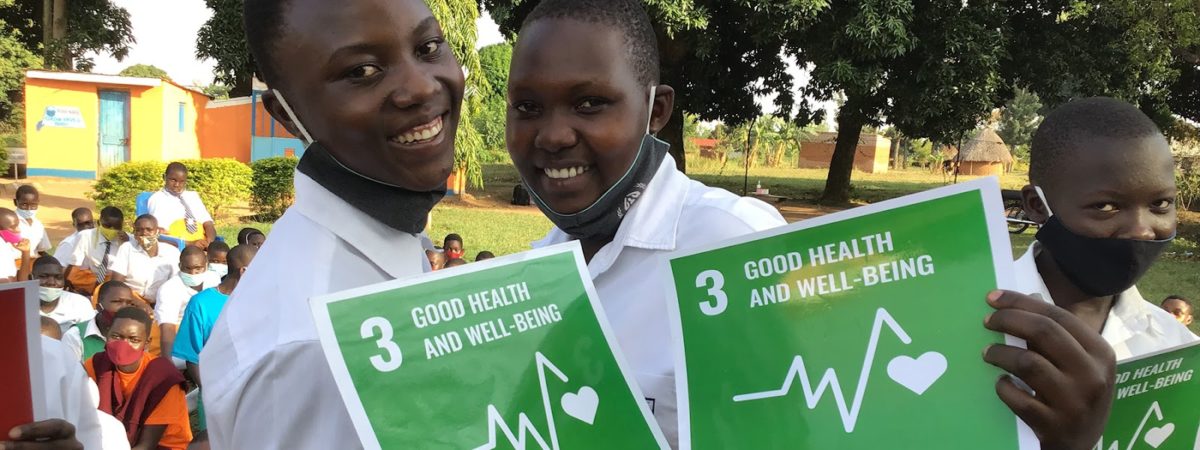
When I first learned about the Ciena Solutions Challenge, I was thrilled at the idea of participating in a project that connects to the Sustainable Development Goals, but I also wondered how my students would participate since students were still at home due to COVID-19 school lockdowns and travel restrictions. [Editor’s note: School resumed in Uganda in January 2022 after the world’s longest pandemic school closure—22 months.]
It took me three months to decide whether to participate since my students come from rural backgrounds where even virtual contact is difficult due to a lack of digital devices.
After studying the guidelines, we started brainstorming different community challenges that students related to, especially during the time that schools were shut down. During that time, students observed and experienced many challenges in the community, so it was easy to identify an issue of concern. Students selected three crucial challenges: teenage pregnancy, drug abuse, and climate change.
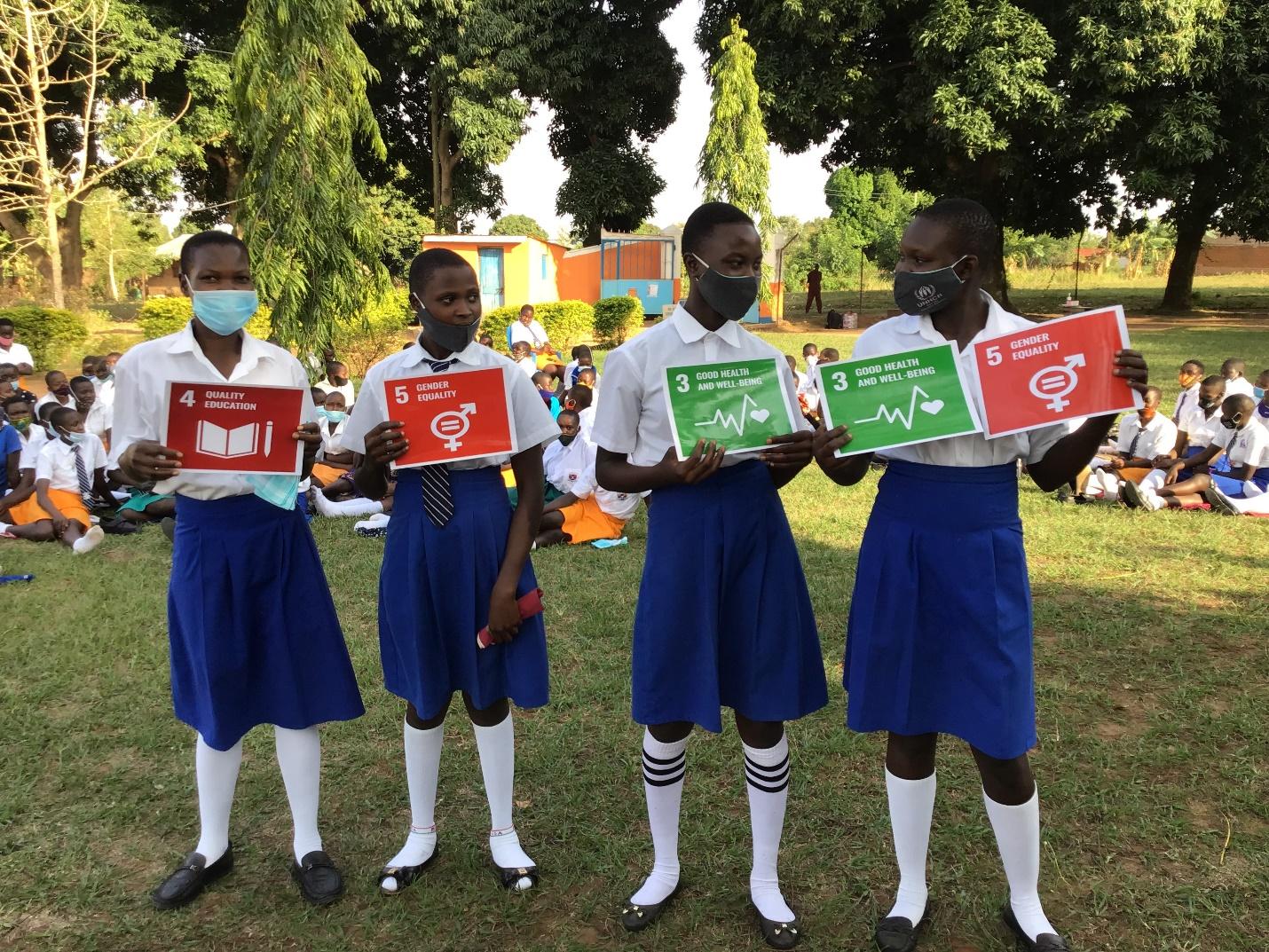
My students at a school assembly showing the Sustainable Development Goals that they tackled in the Ciena Solutions Challenge. Photo Credit: Grace Nabuduwa
I kept my students motivated during the Ciena Solutions Challenge by discussing with them about the importance of the work that we are doing. For them to realize that they were making a contribution to the community was motivating enough.
Grace Nabuduwa
The girls gained knowledge and understanding of the various issues concerning teenage pregnancy and came up with the essential question: How do we protect young girls from teenage pregnancy? By asking why teenage girls in the community were becoming pregnant at higher rates, the girls were able to build a problem tree. This process opened their minds to how this type of analysis can be used in other classes during their study of various subjects.
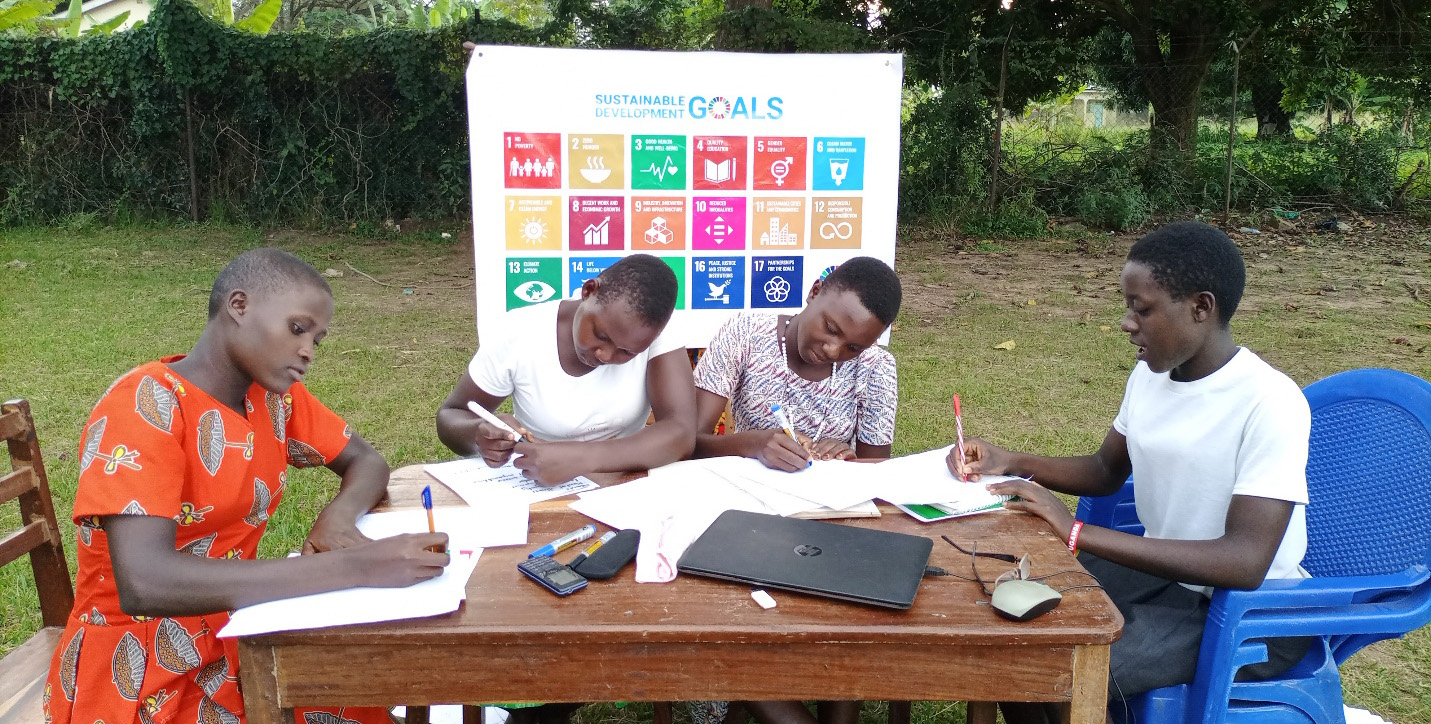
Students brainstorming during the Engage phase of the project. Photo Credit: Grace Nabuduwa
In the Investigation stage, students interviewed different people about the issue of teenage pregnancy, including parents, teachers, pregnant girls, teen mothers, boys, and teen fathers. In addition, girls interviewed police officers in charge of family protection. The officers shared compelling stories of challenges many teenage girls face during pregnancy and how these girls often come to the police officers for support in desperate situations.
Students took what they learned and shared the information at a school assembly and community venues such as a church service. One student commented that she had never addressed an assembly of people and was proud that she now had the confidence to speak before large groups of people. Students discovered that they could create awareness campaigns to address the challenge of teenage pregnancy.
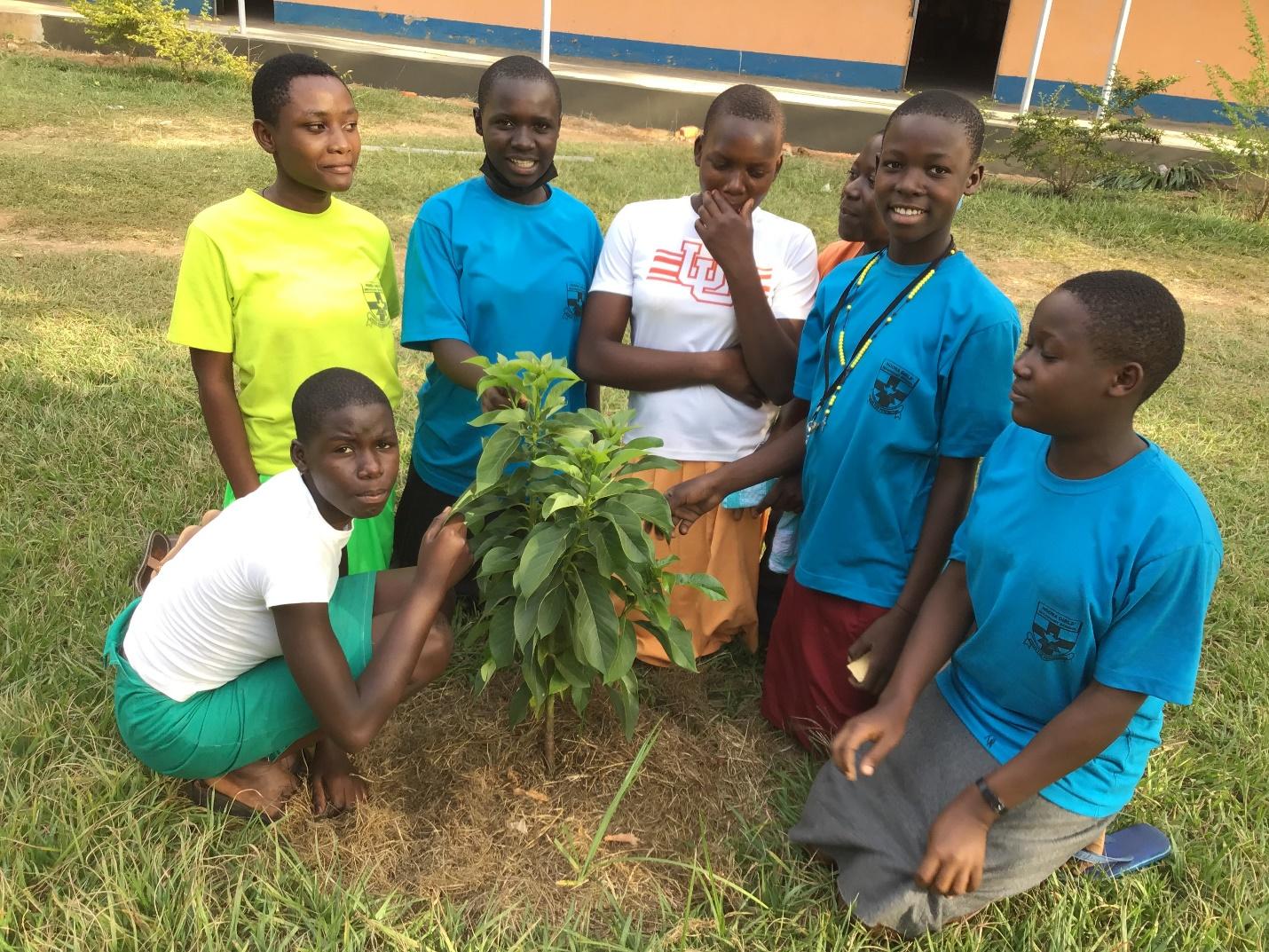
Caption: Girls tending to a tree to address climate change impacts. Photo Credit: Grace Nabuduwa
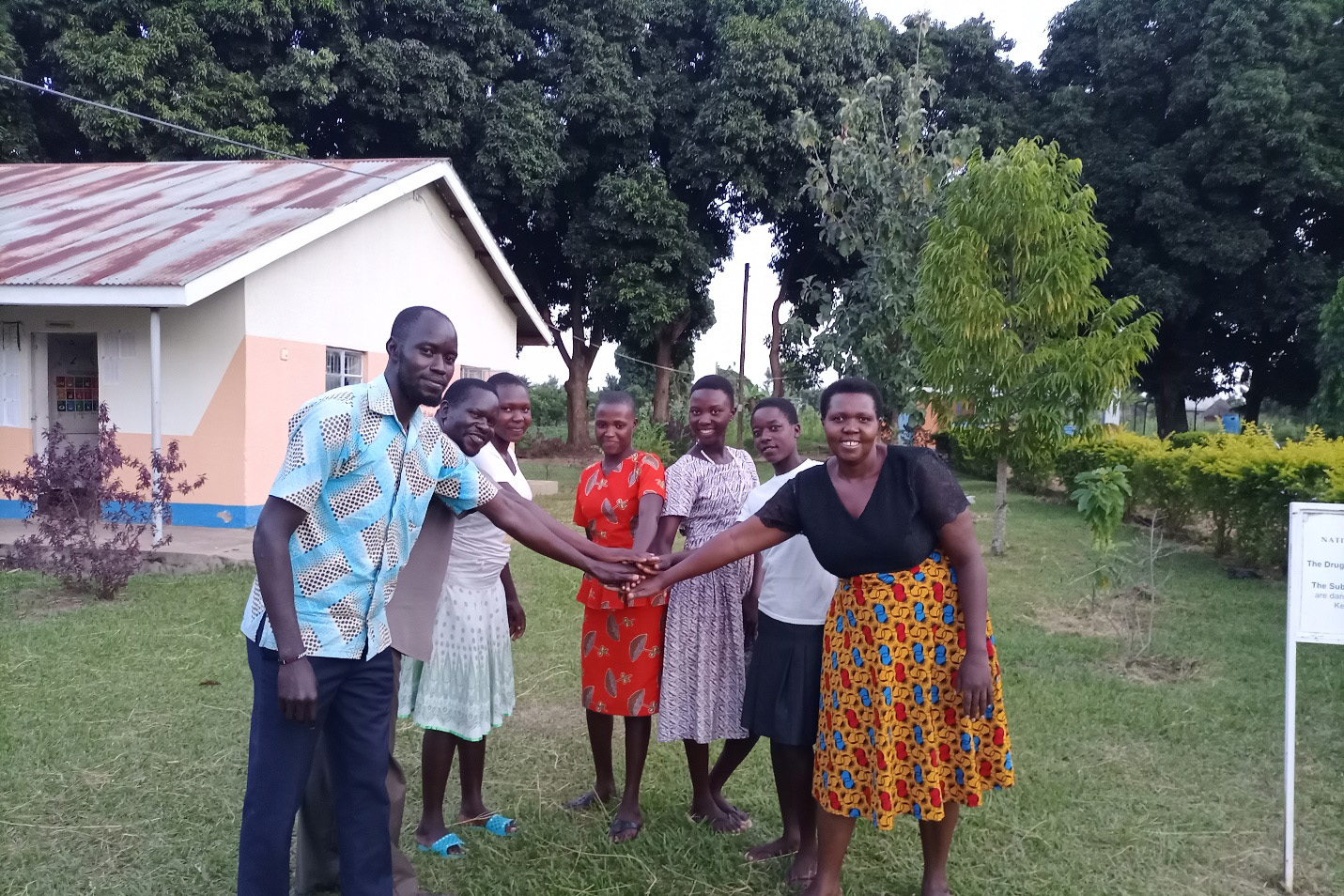
Caption: Ngora Girls Secondary School project team. Photo Credit: Grace Nabuduwa
Throughout the Ciena Solutions Challenge, I was impressed with the commitment students showed, so much so that they would forget about lunch. What I learned as an educator is that students are capable of doing amazing things. Students only need guidance from teachers as facilitators, and they will get motivated to work by themselves meaningfully while also developing 21st century skills such as critical thinking, collaboration, communication, decision-making, digital literacy, citizenship, and leadership.
Design thinking brings out the best talents from students and makes learning fun. I wish more teachers would integrate this kind of teaching into their classrooms in order to give their students new learning experiences.